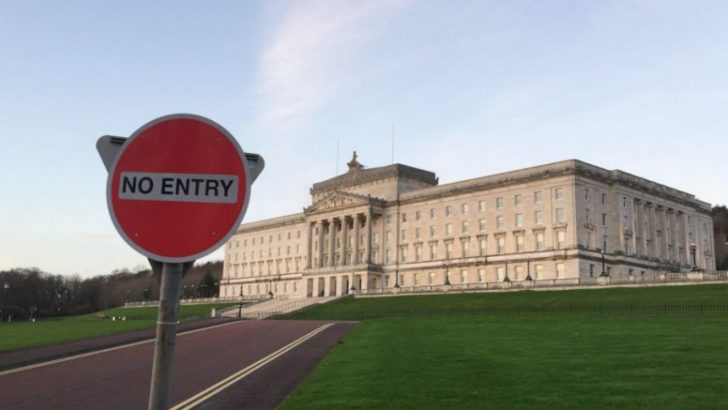The View
Martin Mansergh
The Easter period in the Christian calendar is a time of both death and resurrection. When tragedy strikes, there is a challenge, when people are faced by a great and wholly unexpected setback to try and find a transformative response. Three such events occurred around this Easter.
The largest-scale events were the multiple suicide bomb attacks claimed by ISIS on worshippers in churches and hotel guests, which cost over 250 lives in Sri Lanka. It is an island country much the same size as Ireland, where religious and ethnic tensions following a bloody end to the civil war remain high. It might have been better served by persevering with its peace process rather than the pursuit of a controversial all-out military victory.
Ireland is a country that could help spearhead international initiatives to check and counteract the ever-increasing attacks motivated by religious hatred and intolerance against worshippers in mosques, churches and synagogues or indeed religious groups generally. States, members of the United Nations, should be required to extend domestically the basic protections that they expect for their citizens when they travel or live abroad.
All who love France will have been deeply saddened by the fire damage to the cathedral of Notre-Dame, one of the most recognisable symbols of Paris. Even for as secular a country as France, Notre-Dame was recognised as an integral part of its national identity and as something that has to be rebuilt.
Fire
The fire which occurred during refurbishment is a timely warning to everyone, including ourselves, of the dangers involved for old buildings and the need for stringent precautions. St Mel’s Cathedral in Longford is one example of a successful restoration after fire, but sometimes a longstanding ruin, if handled sensitively, can be given a whole new life, as was the case in Holycross Abbey in Co. Tipperary in the 1970s.
Given the devastating effects of world wars, a huge amount of experience in reconstruction is available. Dresden, victim of a destructive and unnecessary night of allied bombing in February 1945, rebuilt the Frauenkirche over the following 60 years with some restitution coming from Britain and America so that from the outside it looks as it did in 18th-Century pictures by Canaletto. De Valera’s appeals to save Rome in 1944 during the allied advance may have helped, as did the refusal of the German commander in Paris to obey Hitler’s order to destroy the city, including no doubt Notre-Dame, as the German army pulled out.
Historic churches in Moscow and St Petersburg, despite the devastations of history, are in pristine condition, and in many cases are used by the Russian Orthodox Church, despite being in state ownership. Earlier last month, President Putin re-opened the restored church attached to the Catherine Palace (named after Catherine I, wife of Peter the Great).
History teaches that religion should never be scorned as a source of pride in national identity. Equally, churches should be a resource beyond the ranks of believers for all who wish to share in or benefit from their traditions and the rich culture associated with them.
Every country has its demons, sometimes all too visible, but often largely concealed or covered by silence. For France, it has been a case for over two centuries of trying to separate the progressive legacy of the French revolution from the reign of terror and the religious massacres associated with it.
Their ongoing challenge has been to establish a conservative republicanism based on representative political institutions as opposed to street battles. They are cautious about deifying the people. An architect and early prime minister of the Third Republic Jules Ferry said that “philosophy has not destroyed the infallibility of divine right (of kings) in order to substitute the infallibility of popular right”.
That is exactly what the proponents of Brexit are trying to insinuate. The essence of democracy is that the people can change their mind. Why should a referendum result be uniquely sacred and irreversible, when new elections can be held quite regularly, and parliamentary decisions can be revisited practically weekly? Next time round, if it comes to that, the EU should decide on an indefinite suspension of the Article 50 process, unless and until the UK parliament can arrive at an agreed position on withdrawal consistent with its EU obligations, as negotiated by its government.
The murder of Lyra McKee, on the eve of Good Friday, 21 years after the 1998 Agreement, was an awful reminder of the dangerous embers of hatred still to be damped down. Lyra’s much quoted words, “We were the Good Friday Agreement generation, destined to never witness the horrors of war, but to reap the spoils of peace, the spoils that never seemed to reach us” were a poignant summation of their life experience.
Her eloquence was almost matched at her funeral in St Anne’s Cathedral by Fr Martin Magill, when he expostulated to the politicians who had come together for her funeral: “Why in God’s name does it take the death of a 29-year old woman…to get to this point?”
Strong public applause for his sentiments has led to a renewed attempt by the two Governments to restart talks to restore the institutions. One can only hope that what often happens after a widely acclaimed sermon, which is that people revert the next day to the entrenched position they held previously, does not happen again this time. Michéal Martin hit the nail on the head, when he said at Arbour Hill last Sunday “for democrats, a parliament is a place you go to solve problems – not a place you refuse to go to unless your problems are solved in advance”.
The dissident paramilitary organisations claim that their actions are intended for propaganda purposes, in which case it is appallingly bad propaganda for the cause of a united Ireland.
In the world today there is a premium on responsible politics, but in too many places a paucity of it.


 Stormont
Stormont 